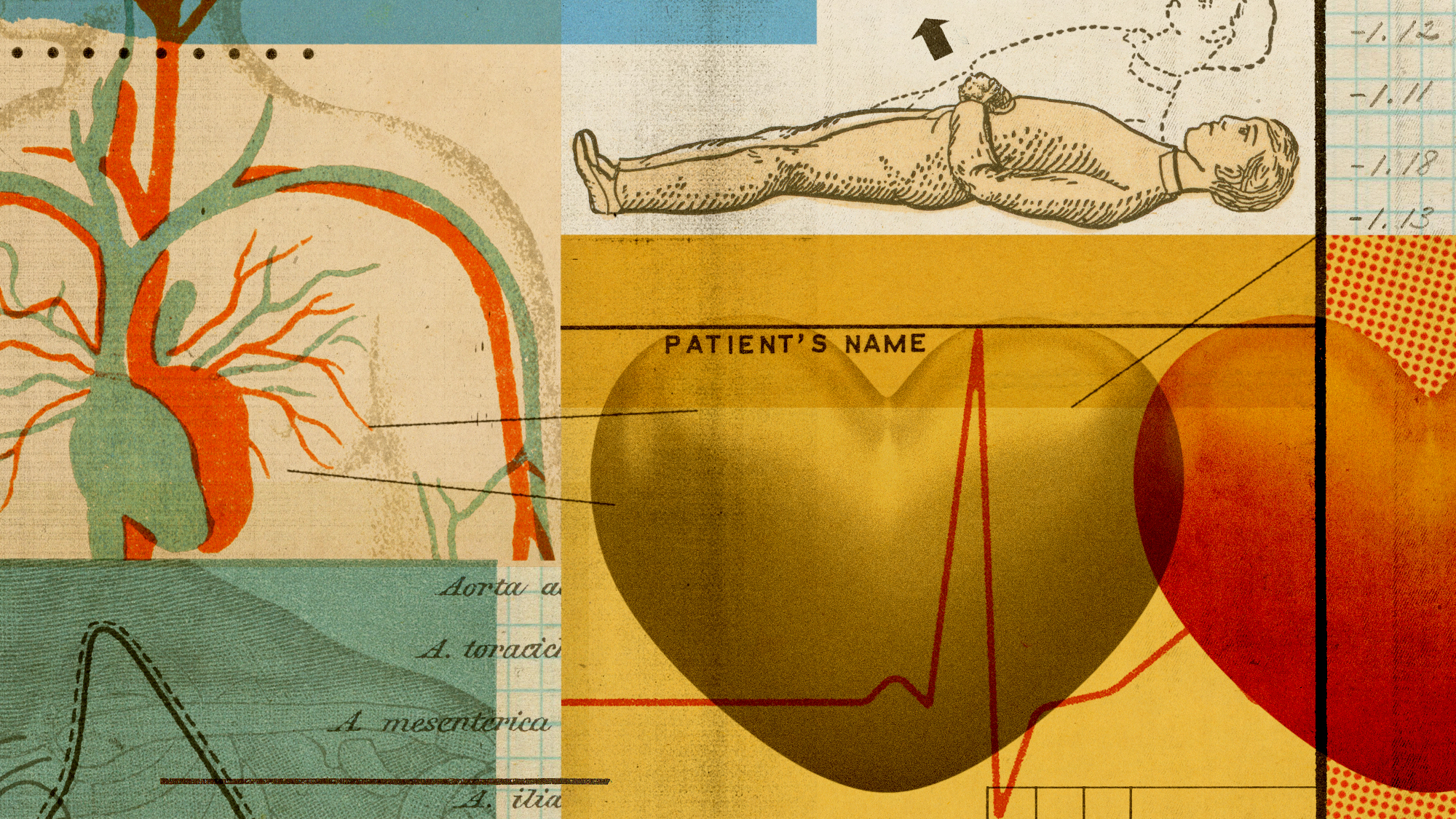What is POTS and why is it more common now?
The amount of circulation disorder cases has tripled


A free daily email with the biggest news stories of the day – and the best features from TheWeek.com
You are now subscribed
Your newsletter sign-up was successful
Since the Covid-19 pandemic, there has been a rise in cases of postural orthostatic tachycardia syndrome (POTS). The circulation disorder mostly affects women, and while cases used to appear in older individuals, doctors are now seeing a rise in patients between the ages of 15 and 25. POTS can be debilitating and does not currently have a cure.
What is POTS?
POTS is a "condition that causes a number of symptoms when you transition from lying down to standing up, such as a fast heart rate, dizziness and fatigue," said The Cleveland Clinic. Reason being, "when you've got POTS and stand up, more blood than normal pools down in the lower half of your body," said Forbes. This causes your heart to beat faster to compensate. The condition affected between one and three million people prior to the pandemic, but a pre-printed study by Johns Hopkins said that instances have more than tripled, with approximately 6 to 7 million new cases. "The most common trigger of POTS is a viral infection," Svetlana Blitshteyn, a neurologist and the director of the Dysautonomia Clinic in Buffalo, New York, said to CBS News. "This includes viruses like influenza and parvovirus and Covid-19."
There has been a recent slew of diagnoses in teens and adults who were otherwise healthy. Specifically, highly-trained female athletes have been affected. "These patients are young people in their 20s, 30s and 40s who were healthy or had minor medical problems that didn't impact their lives before and now they are expressing extreme fatigue, dizziness, headache, inability to exercise and some are unable to work," Blitshteyn said. However, doctors are not quick to diagnose POTS. "Since POTS isn't technically life-threatening, if you're fatigued or fainting, have a racing heartbeat, a doc will likely scan you for other, perhaps more immediately dangerous, things before considering POTS," said Self.
The Week
Escape your echo chamber. Get the facts behind the news, plus analysis from multiple perspectives.

Sign up for The Week's Free Newsletters
From our morning news briefing to a weekly Good News Newsletter, get the best of The Week delivered directly to your inbox.
From our morning news briefing to a weekly Good News Newsletter, get the best of The Week delivered directly to your inbox.
Who is most affected?
Anyone can get POTS, but it is "primarily seen in women that are of reproductive age," said The University of Utah. The reason for this is not yet clear, but some conditions associated with POTS also primarily affect women, like hypermobile Ehlers-Danlos syndrome and autoimmune diseases. Women are also thought to be "more vulnerable to inflammation," said The Washington Post. "It could reflect the damage that comes with being hit with a virus unknown to humans until 2020. And the stress associated with repetitive physical exhaustion could leave athletes at risk."
Athletes may be predisposed to the condition. Some of those diagnosed also had hypermobility, meaning they have a greater-than-average range of motion, which is beneficial in a number of sports. But hypermobility could also be making blood vessels "more stretchy," impacting heart rate and blood pressure, Sara Gould, an orthopedic surgeon, said to the Post. In addition, some POTS patients also have a "condition called myalgic encephalomyelitis/chronic fatigue syndrome (ME/CFS), which is characterized by post-exertional malaise (PEM) — a situation in which symptoms worsen after exercise," said National Geographic.
The severity of POTS can vary greatly from person to person. "Patients with severe symptoms might have to limit their lifestyles and daily activities a great deal, to the point where they can't work a full-time job that involves a lot of standing or walking," said Richard Shelton, a cardiologist at the University of Utah Health. However, for many, symptoms are manageable through exercise, diet changes, sleep changes, and in some cases, medication.
A free daily email with the biggest news stories of the day – and the best features from TheWeek.com
Devika Rao has worked as a staff writer at The Week since 2022, covering science, the environment, climate and business. She previously worked as a policy associate for a nonprofit organization advocating for environmental action from a business perspective.
-
 Nuuk becomes ground zero for Greenland’s diplomatic straits
Nuuk becomes ground zero for Greenland’s diplomatic straitsIN THE SPOTLIGHT A flurry of new consular activity in the remote Danish protectorate shows how important Greenland has become to Europeans’ anxiety about American imperialism
-
 ‘This is something that happens all too often’
‘This is something that happens all too often’Instant Opinion Opinion, comment and editorials of the day
-
 House votes to end Trump’s Canada tariffs
House votes to end Trump’s Canada tariffsSpeed Read Six Republicans joined with Democrats to repeal the president’s tariffs
-
 Growing a brain in the lab
Growing a brain in the labFeature It's a tiny version of a developing human cerebral cortex
-
 A Nipah virus outbreak in India has brought back Covid-era surveillance
A Nipah virus outbreak in India has brought back Covid-era surveillanceUnder the radar The disease can spread through animals and humans
-
 Mixed nuts: RFK Jr.’s new nutrition guidelines receive uneven reviews
Mixed nuts: RFK Jr.’s new nutrition guidelines receive uneven reviewsTalking Points The guidelines emphasize red meat and full-fat dairy
-
 Trump HHS slashes advised child vaccinations
Trump HHS slashes advised child vaccinationsSpeed Read In a widely condemned move, the CDC will now recommend that children get vaccinated against 11 communicable diseases, not 17
-
 The truth about vitamin supplements
The truth about vitamin supplementsThe Explainer UK industry worth £559 million but scientific evidence of health benefits is ‘complicated’
-
 Health: Will Kennedy dismantle U.S. immunization policy?
Health: Will Kennedy dismantle U.S. immunization policy?Feature ‘America’s vaccine playbook is being rewritten by people who don’t believe in them’
-
 Stopping GLP-1s raises complicated questions for pregnancy
Stopping GLP-1s raises complicated questions for pregnancyThe Explainer Stopping the medication could be risky during pregnancy, but there is more to the story to be uncovered
-
 Choline: the ‘under-appreciated’ nutrient
Choline: the ‘under-appreciated’ nutrientThe Explainer Studies link choline levels to accelerated ageing, anxiety, memory function and more
